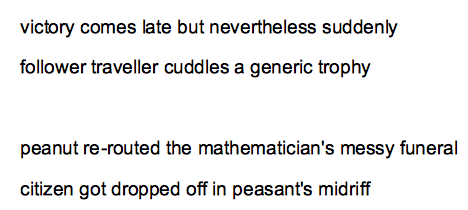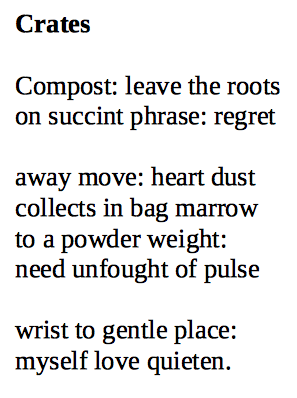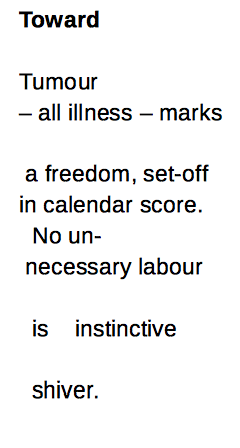Second generation New York poet. His collected poems has been available since 2013. Fairly direct address (which is not unusual; I’ve read that Ashbery was bothered by the problem of communication) , which initially interested me due to his conflicted character. The more I read the better it is. Ceravolo is bouncing along the line energetically, and, if not flawlessly, then in an exciting manner.
I might put that down to the New York School’s interest in freedom from, and in, American culture and how its authors can be like sponges that both absorb and are constructed by their literary background (Pasternak). I’d love to read a study comparing Ashbery’s readership (O’Hara’s “coterie”) with the community around the Cambridge School’s egg heads.
I’m enjoying this collected poems about as much as I do Lee Harwood’s. The latter is the more lovely, more expansive, poetry, but these poems are happier.


